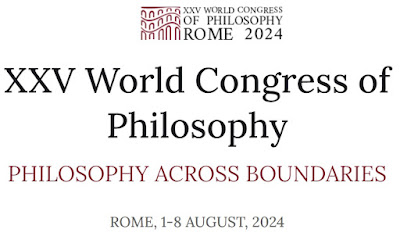WELCOME FROM THE PRESIDENTS OF COC
HAO, PING
PRESIDENT OF THE
CHINESE ORGANIZING COMMITTEE
LIN, JIANHUA
PRESIDENT OF THE
CHINESE ORGANIZING COMMITTEE
Founded in 1898, Peking University marks the beginning of modern higher education in
China. On behalf of the Chinese Organizing Committee, we, as the presidents of PKU, the
host institute for 24th World Congress of Philosophy, warmly welcome you, philosophers and
lovers of philosophy from all over the world.
We invite you to one of the most memorable
and significant cultural events for the love and pursuit of knowledge in PKU from August
13 - 20, 2018.
In 1912, PKU founded the first philosophy department in China. At this very early phase,
our predecessors decided to learn broadly from Western, Indian and Chinese philosophical
traditions.
From the very outset, philosophizing in China is comprehensive and open
toward the world, while at the same time deeply rooted in its own heritage. Modern Chinese
philosophers are committed to the construction of contemporary civilization through
communication with other cultures and appropriation of all their outstanding thoughts. One
of the most ancient Chinese sayings states: “Even an established nation like Zhou still regards
self-renewal as its mission”.
Like the rest of the world, China equally maintains a long philosophical tradition. Lao
Tze, Confucius, and many others reflect on fundamental issues concerning world, society
and human life.
They come to be preeminent sources that influence and contribute to
shape human civilization. In ancient China, philosophers were respected as sages due to
their knowledge, virtue and wisdom. Philosophical cultivation was considered as the most
fundamental ground of human education because it “sets one’s heart upon the Way”.
Ancient
Chinese philosophy not only influenced East Asia but also captured the attention of European
intellects. Along with the development of Chinese bonds to the world, Lao Tze, Confucius, Mencius, Chuang Tze, Chu Hsi, Wang Yang-ming and other Chinese philosophers are being
made familiar to more and more people. In ancient times, Buddhism was introduced to make
a far-reaching impact on Chinese philosophy, religion and social development.
In modern
times, western ideas are continuously imported and spread to effect considerable changes on
Chinese social and value order.
In the past decades, China has become more and more closely connected to the world due
to the fast development and continuous progress of economy and society in the country.
In
the new era, a renewed philosophy is demanded to make better sense of the relation between
China and the world. In the meanwhile, the community of mankind where we live together
is undergoing all kinds of changes. Such changes likewise call for a globalized philosophy
which is capable of communicating multiple cultural and social contexts and responding
to the future.
“Learning to be Human” is the theme of the 24th World Congress of Philosophy.
We believe
that philosophers can identify different dimensions of thinking about humans in response
to this theme. Nowadays, the advance of modern science and technology not merely
improves human life but also causes unprecedented challenges and crises. Conflicts between
civilizations and between nations, tensions between individual and community and between
different individuals as well as disquiet in each of us are all in need of philosophical wisdom.
It is simply impossible to find out any ready-made solutions.
However rational reflection
and dialogue may help to create a better world and to gain an individual life more
adapted to our times.
We are extremely grateful to the Fédération Internationale des Sociétés de Philosophie (FISP)
for the trust and decision to select Peking University as the host institute of the congress.
We
especially thanks President of FISP, Dermot Moran, the General Secretary, Luca Scarantino,
the President of the International Program Committee, Riccardo Pozzo, all the members
involved in the International Program Committee, all the members working hard in the
International Executive Committee as well as all the members in the Steering Committee of
FISP.
They have been working closely with PKU to prepare the expected congress for the last
four years. Lastly, but not least, we own our heartfelt gratitude to our colleagues in Chinese
philosophical community who are all committed to the success of the congress as their
common enterprise.
Once again, we welcome you to the beautiful campus of Peking University in the summer of
2018.
We invite you into thoughtful dialogues concerning “Self”, “Community”, “Nature”,
“Spirituality” and “Tradition” in the auditoriums, in the lecture halls, by the Weiming
Lake and at the foot of Boya Pagoda.
The congress will certainly enhance the reciprocal
understanding between China and the world in the intellectual domain. We are hoped to shed
philosophical lights upon human communal life with a consensus in differences and plurality
and a progress through discussion and dialogue.



